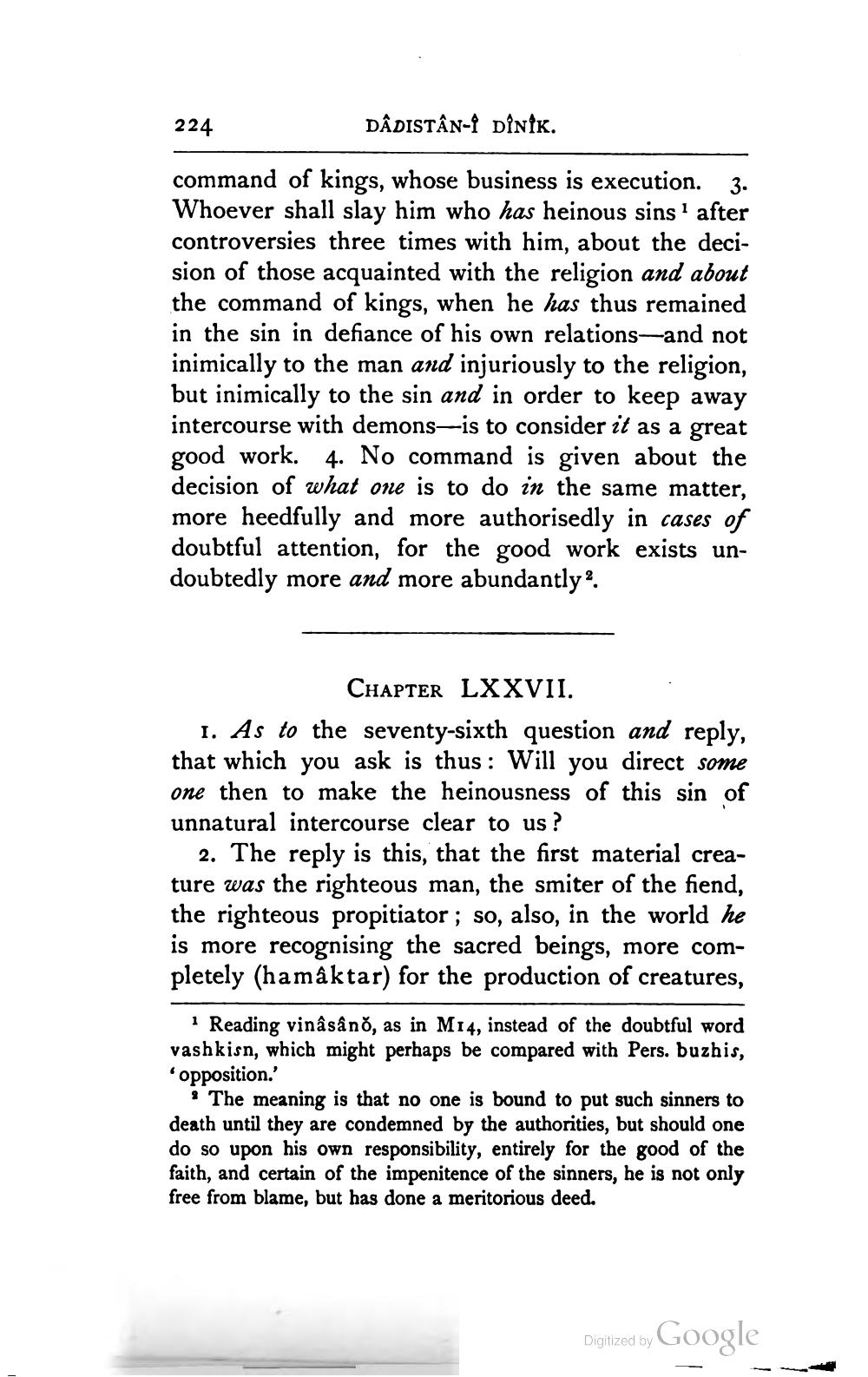________________
224
DÂDISTÂN-I DÎNÍK.
command of kings, whose business is execution. 3. Whoever shall slay him who has heinous sins' after controversies three times with him, about the decision of those acquainted with the religion and about the command of kings, when he has thus remained in the sin in defiance of his own relations—and not inimically to the man and injuriously to the religion, but inimically to the sin and in order to keep away intercourse with demons—is to consider it as a great good work. 4. No command is given about the decision of what one is to do in the same matter, more heedfully and more authorisedly in cases of doubtful attention, for the good work exists undoubtedly more and more abundantly?
CHAPTER LXXVII. 1. As to the seventy-sixth question and reply, that which you ask is thus : Will you direct some one then to make the heinousness of this sin of unnatural intercourse clear to us?
2. The reply is this, that the first material creature was the righteous man, the smiter of the fiend, the righteous propitiator ; so, also, in the world he is more recognising the sacred beings, more completely (hamâktar) for the production of creatures,
1 Reading vinâsâno, as in M14, instead of the doubtful word vashkisn, which might perhaps be compared with Pers. buzhis, 'opposition.'
The meaning is that no one is bound to put such sinners to death until they are condemned by the authorities, but should one do so upon his own responsibility, entirely for the good of the faith, and certain of the impenitence of the sinners, he is not only free from blame, but has done a meritorious deed.
Digitized by Google




